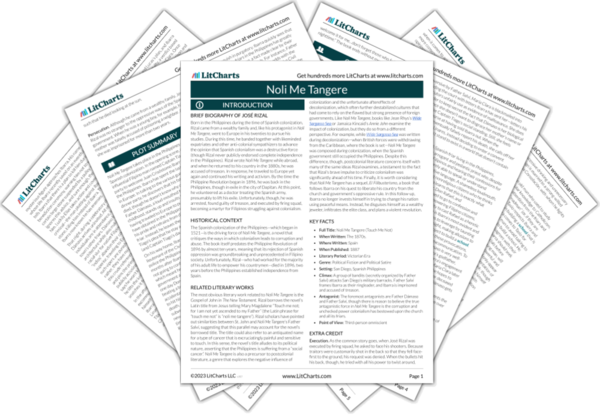At the end of the meeting, approaches the schoolmaster and asks him if he has anything he wants to send to the provincial capital, since Ibarra is going there. “You have some business there?” asks the schoolmaster. “
We have some business there!” Ibarra says without explanation. Meanwhile, and make their way home together. On their way, Tasio bemoans the fact that —Don Filipo’s boss—is a slave to the priest.
